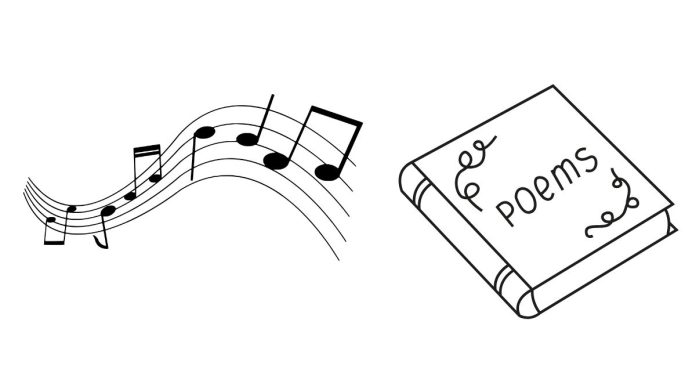Urdu poetry has a rich tradition that spans centuries and is known for its profound emotional depth, lyrical beauty, and eloquence. Below are some classic Urdu poems and works by legendary poets that are cherished in the literary world. These poems often explore themes of love, loss, mysticism, and beauty.
1. “Lab Pe Aati Hai Dua” by Allama Iqbal
Poet: Allama Iqbal
Theme: Prayer, aspiration, and hope.
This famous poem, also known as “The Prayer,” is often recited by children and speaks of the desire for knowledge, wisdom, and purity. It is about a child’s innocent wish for the betterment of themselves and the world around them.
Excerpt:
“Lab pe aati hai dua ban ke tamanna meri
Zindagi shamma ki soorat ho Khudaya meri”
(My wish comes to my lips as a prayer,
O Lord, may my life be like the light of a lamp.)
2. “Tu Shaam-e-Gham Ki Tanhaiyon Mein” by Faiz Ahmed Faiz
Poet: Faiz Ahmed Faiz
Theme: Longing, love, separation.
Faiz’s poetry is deeply emotional, often reflecting themes of political struggle and love. This poem beautifully expresses longing and melancholy, making it one of his most celebrated pieces.
Excerpt:
“Tu shaam-e-gham ki tanhaiyon mein
Meri yaadon ka saaya hai”
(In the loneliness of the evening of sorrow,
Your memory is my shadow.)
3. “Raat Yun Dil Mein Teri” by Faiz Ahmed Faiz
Poet: Faiz Ahmed Faiz
Theme: Love and longing.
One of Faiz’s most popular poems, “Raat Yun Dil Mein Teri,” speaks about deep love, yearning, and the sense of longing for a loved one. The poet speaks of how love consumes the heart, even in the absence of the beloved.
Excerpt:
“Raat yun dil mein teri
Khayal aaya hai”
(Last night, your memory came to my heart.)
4. “Jab Tera Naam Liya” by Mirza Ghalib
Poet: Mirza Ghalib
Theme: Love, pain, and separation.
Ghalib’s work continues to be highly admired for its complex metaphors and deep emotional expression. This poem is a classic that delves into the anguish and pain of unrequited love.
Excerpt:
“Jab tera naam liya, dil ko sukoon aaya
Jab tujhe yaad kiya, dil ko shifa mil gayi”
(When I took your name, my heart found peace,
When I remembered you, my heart healed.)
5. “Hazaaron Khwahishen Aisi” by Mirza Ghalib
Poet: Mirza Ghalib
Theme: Desires, unfulfilled dreams, love.
One of the most iconic lines in Urdu poetry, this poem speaks about endless desires, the longing for things unattainable, and the agony of wanting something beyond reach.
Excerpt:
“Hazaaron khwahishen aisi ke har khwahish pe dam nikle”
(Thousands of desires, each so intense that it might take my life to fulfill them.)
6. “Aaj Phir Dil Ne Ek Tamanna Ki” by Faiz Ahmed Faiz
Poet: Faiz Ahmed Faiz
Theme: Hope and renewal.
This poem expresses how the heart continually holds onto wishes and dreams, no matter how much pain or disappointment it endures.
Excerpt:
“Aaj phir dil ne ek tamanna ki
Aaj phir dil ne ek arman kiya”
(Today, once again, my heart has a wish,
Today, once again, my heart has a yearning.)
7. “Dil Hi To Hai” by Mirza Ghalib
Poet: Mirza Ghalib
Theme: Heartache and introspection.
One of Ghalib’s famous poems, this piece speaks of the heart’s fragility and the pain it endures despite being the seat of all emotions.
Excerpt:
“Dil hi to hai na sang-o-khisht, dard se bhar na aaye kyun
Tere honton pe bas ek muskurahat ho, toh aaj ki raat hai”
(It’s just a heart, not made of stone or brick, why shouldn’t it be filled with pain?
A smile on your lips, and tonight becomes a bright memory.)
8. “Baat Karni Hai” by Ahmed Faraz
Poet: Ahmed Faraz
Theme: Love, regret, and longing.
This romantic poem explores the feelings of unspoken love and the pain of unexpressed emotions.
Excerpt:
“Baat karni hai”
(There is something I need to talk about, something unspoken and heavy.)
9. “Fursat Ke Raat Din” by Ahmed Faraz
Poet: Ahmed Faraz
Theme: Reflection and love.
Faraz is known for his romantic poetry, and this piece reflects on life’s fleeting moments, love, and the passage of time.
Excerpt:
“Fursat ke raat din, aik saath nahi guzarte”
(Leisurely days and nights, don’t pass together.)
10. “Tulu-e-Islam” by Allama Iqbal
Poet: Allama Iqbal
Theme: Spirituality, nationhood, and empowerment.
This poem is a call for the rejuvenation of the Islamic world. Iqbal’s poetry often contains deep philosophical musings, calling for spiritual and national awakening.
Excerpt:
“Khudi ko kar buland itna, ke har taqdeer se pehle
Khuda bande se khud poochhe, bata teri raza kya hai”
(Elevate your selfhood to such heights, that before every destiny,
God Himself will ask, “What is it that you desire?”)
These poems represent just a small sample of the vast and beautiful tradition of Urdu poetry. Many of these poets, like Mirza Ghalib, Faiz Ahmed Faiz, and Allama Iqbal, are revered not only for their mastery of the Urdu language but also for their ability to convey the deep complexities of human emotions and thought.
If you’re interested in exploring more, I recommend reading complete anthologies or collections of their works to appreciate the full beauty of their poetry.
Related posts:
- What does ringing in the ears mean spiritually?
- What Colors Do Blue and Green Make?
- How Long Does Raw Chicken Really Last in the Fridge?
- What are some amazing and memorable Valentine’s Day ideas that will leave a lasting impression?
- What is the definition of ‘friends with benefits?
- What is the difference between a bachelor’s and a degree?


